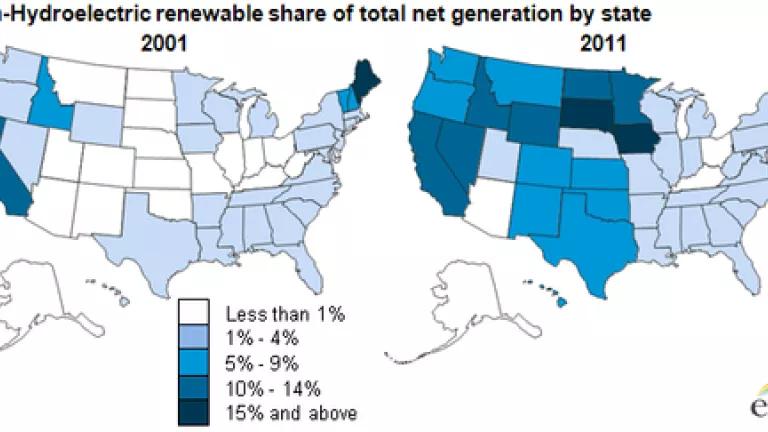
How would you judge a program that invested $9 billion over three years and generated $44 billion in economic output, while supporting 52,000 to 75,000 jobs in the process? And over the long term, is expected to support about 5,000 jobs a year for the next few decades, as well as $1.8 billion a year in economic output?
Sounds like a solid investment, right? But some in Congress would like you to overlook these numbers, from a new report by the Department of Energy, because the program in question was designed to fund renewable energy projects.
In their eagerness to earn political points by scoffing at the administration in general, and renewable energy in particular, some members of Congress continue to ignore the fact that clean energy and efficiency programs are powerful promoters of job growth, in addition to being a smart solution to our energy problems.
Renewable energy is just one of the industries behind America’s burgeoning green economy, which already employs 3.1 million Americans. (This map, from the Energy Information Administration, shows the rapid growth of renewable energy across the country in the last 10 years.)
Source: EIA
The clean car industry has been another driver of job growth, thanks in part to new government fuel economy standards, developed in conjunction with American automakers.
More than 150,000 Americans are already working to build cleaner cars, many of them in jobs that didn’t exist a decade ago. Ford recently announced plans to double the size of its workforce dedicated to fuel efficiency. The company already has more than 1,000 engineers working on hybrid and electric cars.
Just last week, hundreds of new clean car jobs were announced, including R&D jobs for advanced vehicles in Michigan, as well hundreds of jobs in construction, manufacturing, maintenance, and management, for the build-out of an electric vehicle charging network in California. The project will include building 200 roadside charging stations, as well as wiring at least 10,000 parking spaces for EV charging in apartments, offices, schools and hospitals across the state. This isn’t the kind of work that can be sent overseas.
State and federal policies are helping encourage the growth of the clean car industry. California’s zero-emissions vehicle mandate lies behind the EV infrastructure project. Likewise, federal fuel economy standards are helping boost the fortunes of American automakers.
A new report by Citi Investment Research and Analysis, sponsored by Ceres, estimates that American automakers will pull in an extra $2.44 billion dollars in profits under the new efficiency rules. Meeting the new standards will increase car sales overall by 4 percent, according to the study, with the biggest jump in profits going to American companies. March sales figures show big gains for Detroit’s Big Three, sparked by increased sales for fuel efficient cars.
For a hundred years, our government has consistently supported the fossil fuel industry, both in the form of direct subsidies ($4 billion for oil and gas annually) and indirectly, in the form of billions of dollars in health and environmental damages due to fossil fuel use and extraction.
Changing a century-old habit is not going to be easy. But if we’re serious about long-term economic growth, and reducing our environmental and health liabilities, then we need to trust the evidence before our eyes: policies that support clean energy and efficiency can drive economic growth while reducing harmful pollution.